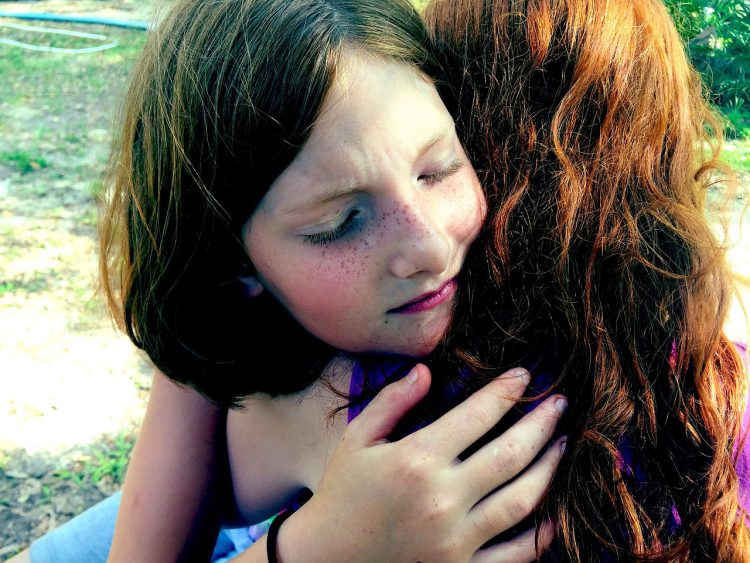The death of a loved one is one of the most challenging experiences for anyone, but it is especially hard for children. It’s important to remember that children have different needs and processes when dealing with loss than adults do, so you’ll need to be extra mindful and sensitive as you support them. Here are some tips on how to help your child cope with loss.

Via Pixabay
Talk About It Openly
It’s important to talk openly with your child about the death of their loved one. Ask your child how they feel and what they need, and listen closely without making assumptions or judgments. Encourage them to talk about their memories of the deceased person and express any emotions they may feel, such as sadness or anger.
Listen To Them And Provide Comfort
When your child expresses difficult emotions, listen to them without trying to problem-solve or fix the issue. Instead, provide a safe space and unconditional love for them to work through their feelings in their own time. Let them know it’s OK for them to feel whatever they are feeling and that you are there to support them.
Let Them Cry It Out
Crying is a natural emotional outlet and an essential part of the grieving process. Let your child express their emotions by crying, even if it’s difficult for you to witness. If they cry in public places, such as at school or out with friends, reassure them that expressing their feelings is perfectly normal and OK.
Help Them Connect with Other Supportive People
It can be helpful for children to talk with other supportive people who can relate to their experiences, such as family members, friends, teachers, school counselors, or religious leaders. These people can provide comfort and understanding in addition to the support you provide at home.
Give Them A Role In The Funeral Process
Helping your child understand and accept the death of a loved one can be made easier if they have some control over their involvement in the funeral process. For example, you can let them choose what to wear, give them an active role such as leading a prayer or reading a poem or have them help with unique decorations or rituals. This way, they can still feel connected to their loved ones and be a part of the honoring process.
Create Rituals Together
Creating rituals together is an effective way for children to honor their deceased loved ones and cope with their feelings of loss. This can include writing letters or cards, discussing favorite memories, planting a tree or garden in honor of them, baking special cookies together in memory, or creating a photo album featuring pictures of the person who passed away.
Encourage Self-Care Habits
Self-care habits are essential in helping your child cope with loss in healthy ways. Please encourage your child to engage in activities that make them feel good, like playing music or sports, dancing, or doing yoga/meditation exercises that focus on relaxation techniques like deep breathing and progressive muscle relaxation (PMR). These activities will help improve their mood by releasing endorphins that promote happiness and reduce grief-related stress levels. Additionally, make sure your child gets enough sleep; sleep deprivation can increase depression symptoms which can further complicate healing from grief.
Create A Special Memorial Together
Creating a special memorial together is another way to honor the memory of your loved one. This can be as simple as purchasing something like poem urns with your child, putting their favorite memories of the person who passed away on it and placing it in a particular place. It can also involve making small tokens such as jewelry, cards, or a scrapbook with photos and stories to remember the person. These special memorials can be comforting and provide an outlet for your child to express their grief constructively.
Be A Role Model
Your actions can provide comfort for your child. Show them it’s OK to talk about their feelings and express grief. Please share your own stories of how you are dealing with the loss, allowing them to see that it’s normal to have complex emotions from time to time. Seeing you model healthy coping skills will also give them examples of ways they can deal with their feelings.
Losing a loved one is a complex process no matter what age you are; however, it can be tough on children because they often don’t understand why this has happened and how best to cope with their emotions. Parents/caregivers need to provide a loving environment where kids feel safe expressing themselves and sharing memories of the deceased person while also engaging in self-care activities explicitly designed for grief management, such as practicing deep breathing exercises and getting enough sleep each night. Being supportive while also allowing space for emotional expression during this period will ensure that your child heals from the loss in healthy ways over time.




